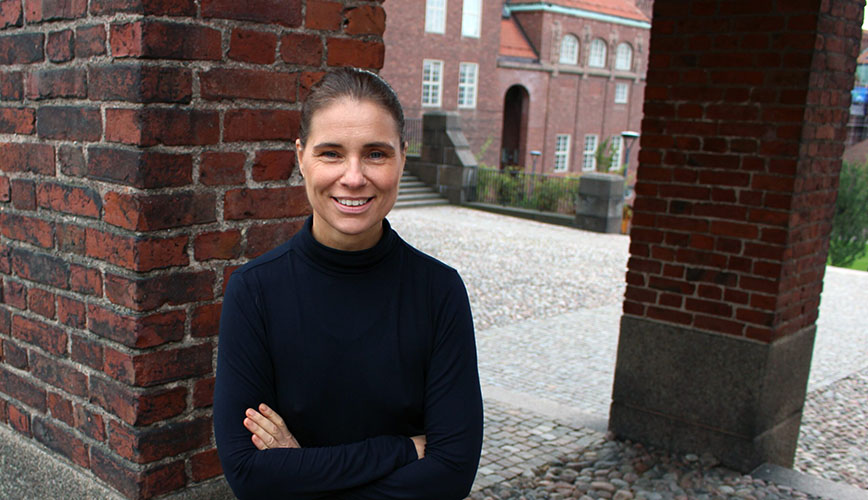Meet professor Anna Delin – director of the WISE Graduate School

What can a student at the WISE Graduate School expect to achieve during their training? KTH professor Anna Delin is director for the WISE Graduate School, part of the Wallenberg Initiative Material Science for Sustainability (WISE) – Sweden’s largest research programme in material science for a sustainable future.
WISE's overarching vision is to perform materials science at the international forefront, to empower sustainable technologies and to train future leaders in society, industry and academia. Under the programme, a postgraduate school will be established, offering 180 PhD positions along with 180 postdoctoral positions.
The WISE graduate school is headed by Anna Delin, full professor at KTH since 2011. She has been awarded with several prices such as the Naturvetarpriset and the Thuréus Prize for “significant contributions to the theory of nanomagnetism” during her extensive career. At KTH, she leads a research group with focus on magnetic and quantum phenomena in materials.
What are the challenges regarding sustainability for materials science at the beginning of the 21stcentury?
There are many challenges. Our society today depends on many materials that are not renewable and/or not sufficiently recycled, like for example construction minerals, oil and many metals. The world primary production of materials accounts for a quarter of all global greenhouse emissions. Our dependence on raw materials is responsible for severe environmental, political and social problems.
However, I would also like to think of this in terms of possibilities. Our advanced knowledge of materials science can be used to create sustainable technologies and functional materials, and thus be part of the solution in creating a sustainable society.
What can a student at the WISE Graduate School expect to achieve during his/her years at the school?
A WISE graduate student will perform research in an excellent environment, working on a carefully selected project with clear impact on future sustainability. The student will also learn about sustainability, both in a broad sense and more materials-science-focussed.
The student will be part of a large network of researchers in both academia and industry, senior as well as junior. Through site visits, the student will learn a lot about how industry works with sustainability and how research results can be applied in practice.
How does the WISE Graduate School contribute to reach the goals of WISE?
The overall goal or vision of WISE is ”Enabling sustainable technologies with positive impact on our society by understanding, creating, and controlling complex materials.
As a researcher, what materials science challenge is closer to your heart?
I’m interested in everything! Large-scale projects like Hybrit and Northvolt come to mind. If successful, these projects will have a major impact. However, my research expertise is in computations at the quantum-mechanical level of magnetism-related phenomena such as spin dynamics, spin textures, and spin transport. From a technological perspective, the aim is to create ultra-low-power spintronics devices.
